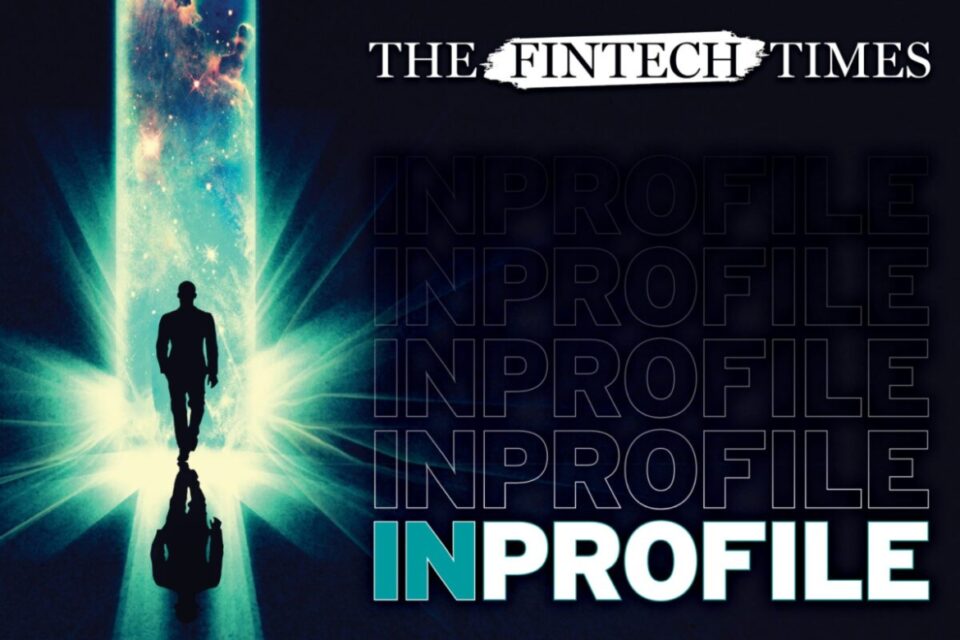The ability of a business to go global hinges on its payment acceptance capabilities. Businesses should seize the benefits of a network approach, but it is the way they tie together various elements of international services that will ultimately determine their performance.
Globally-ambitious businesses require globally-appropriate services, and with this in mind, this latest In Profile feature meets BlueSnap; the payment orchestration platform that seeks to deliver just that.
The company designed its consolidated payment platform to help businesses increase sales and reduce costs when accepting payments domestically and internationally.

This feature is led by the company’s CEO, Ralph Dangelmaier, who with over three decades of experience in the payments industry, remains at the forefront of e-commerce innovation.
Prior to BlueSnap, Dangelmaier served as the president of ACI Worldwide and is the former CEO of the web-based cash management company P&H Solution.
Dangelmaier also serves on the boards of BlueSnap, MineralTree, Electronic Transaction Association and Stonehill College.
Here Dangelmaier details the highs and lows of his career to date, and outlines the position of BlueSnap within the worldwide payments market:
Dangelmaier, tell us more about BlueSnap and its purpose
BlueSnap helps businesses accept payments globally through our payment orchestration platform. Through our global network of local banks, we help merchants accept payments in over 200 regions and expand their international presence. Our payment orchestration platform enables merchants to allow their customers to pay using alternative payment methods, and in their local currency.
Two of the main reasons stopping businesses from reaching international markets are the high transaction fees and low authorisation rates associated with cross-border payments.
With our payment orchestration platform, merchants can use our network of local acquiring banks to remove this roadblock and charge forward with their e-commerce aspirations. We also help merchants streamline their payment process end-to-end through our embedded payment and accounts receivable (AR) automation solutions.
Any recent company achievements you’d like to highlight?
We recently launched our embedded payments and payfac-as-a-service suite which includes three new products – BlueSnap Dash, BlueSnap Relay and BlueSnap Flex. The solutions aim to help software platforms drive revenue growth, enhance their user experience and increase customer retention.
Since the launch, we’ve partnered with a wide variety of companies, powering payments. Most recently, we’ve partnered with Letus, a fintech that combines financial services and rental payments to power payments for their cloud-based platform.
We also opened our EU headquarters in Dublin last year – one of the fintech hubs of Europe with a strong talent base. Earlier this year, we appointed Anthony Carey, who has 30 years of experience in international banking to our board of directors as we continue to grow our EU presence.
How did you personally get into fintech?
I’ve been a payment industry veteran for over 30 years now, and I’ve always belonged in the fintech industry. I started my career at the Bank of America, or the Bank of Boston as it was known then. The term ‘fintech’ hadn’t been coined yet but I worked on wire transfers and card processing.
As I progressed in my career, I worked on products for retailers, processors and financial institutions, while growing both public and private companies.
How have your previous roles influenced your career?
My first role in payments involved working in the back offices of a number of financial organisations. This gave me the opportunity to work on a variety of products, including wire transfers, automated clearing house (ACH) payments and card processing.
During my time at P&H Solutions, I was fortunate enough to build one of the first online business payment platforms. Back then, it was commonly known as a cash management platform, which initiated products like ACH and wire transfers for businesses.
As I continued to progress in my career, I became the CEO of a company called ACI Worldwide, where we had the right exposure to global banks around the country, and met some of the big players within payments.
These roles significantly shaped my career as I was able to gain the hands-on experience needed to really understand how payments have evolved over the years when joining BlueSnap as CEO.
And the best thing about working in the industry?
The growth opportunities. Fintech is constantly evolving, and that really fascinates me. If you think about it, we’re still in the first inning of what’s to come. There’s so much opportunity and so many things to do.
Every day, we’re challenged by our clients and the market – and that’s not work to me, it’s fun. What I also love is how fintech breaks down the barriers of networking. As we work with global partners, I get to travel and meet people all over the world (which also acts as a perfect excuse for wine tasting!). I have a little passion for wine and every time I go to a country I tend to go to a local wine tasting.
What frustrates you most about the fintech industry?
The lack of regulation around new fintech operations frustrates me. The embedded finance boom proves that short-term credit loans are highly attractive.
However, when that comes from a fintech rather than a bank, customers end up in tricky situations. Without regulation, it’s a free-for-all, with the spot as market leader up for grabs by any well-seasoned tech company. Apple making its way into fintech is just the start.
Other big tech companies like Amazon are bound to follow suit, catch up and take up more slices of the pie unless watchdogs put appropriate regulations in place, and fast.
What’s the best mistake you’ve ever made?
I personally don’t think there can be any good ‘mistakes’. However, I do believe that some mistakes can either turn into a great opportunity or at the very least, a great lesson learnt.
Ultimately, as a CEO mistakes are bound to happen, and when they do, they aren’t typically ideal. For example, you don’t always make the right hire, or a deal you’ve signed turns out not to be the best.
In my honest opinion, if you acknowledge and take responsibility for the mistake, and make a conscious effort to move on from it – whether that involves making the tough decision to let someone go or renegotiating a deal that has gone wrong – you will be able to recover and derive a positive lesson from the experience.
What’s the future got in store for BlueSnap?
We will keep pace with new trends and technologies as we expand into new markets and strengthen our position within the EU. We aim to improve how we help people pay and receive payments and present a range of payment options.
With this in mind, over the coming years, we plan on expanding our suite of services to satisfy business needs and streamline embedded payments.
For example, we will employ artificial intelligence (AI) and machine learning to create a faster checkout experience and allow customers to pay in multiple currencies.
What are the next key talking points or challenges for your industry as a whole?
Firstly, embedded payments. This industry is growing rapidly, with an increase in demand for embedded payments as businesses around the world look for more opportunities to grow their software platforms and increase their revenue.
Figures predict that revenues from embedded payments will increase from $43billion in 2021 to $138billion in 2026. As a result, we’ll see more businesses partner with fintechs to adopt embedded payment technologies in order to enhance the user experience, increase product stickiness and open up new revenue streams.
Secondly, cross-border sales. In order to scale up, more merchants are trying to sell their products overseas, and enter new markets. However, our recent findings indicate that retailers express concerns about fraud prevention and ensuring that they can process transactions in a cost-effective and efficient manner.
That said, businesses looking to expand globally should consider localising the customer experience by partnering with a payment provider to help them integrate local payment methods – enabling them to reach a wider audience.
Lastly, a rise in automation. Typical AR management is manual and time-consuming, and about 70 per cent of AR is paper-based. However, as legacy processes such as fax and mail continue to decline, the adoption of AR automation is on the rise. More businesses are understanding the technology needed to improve AR and how it benefits the bottom line.
We recently published our predictions for 2023 which you can find here, which outline in more detail where we think the industry is going, so keep your eyes peeled!



